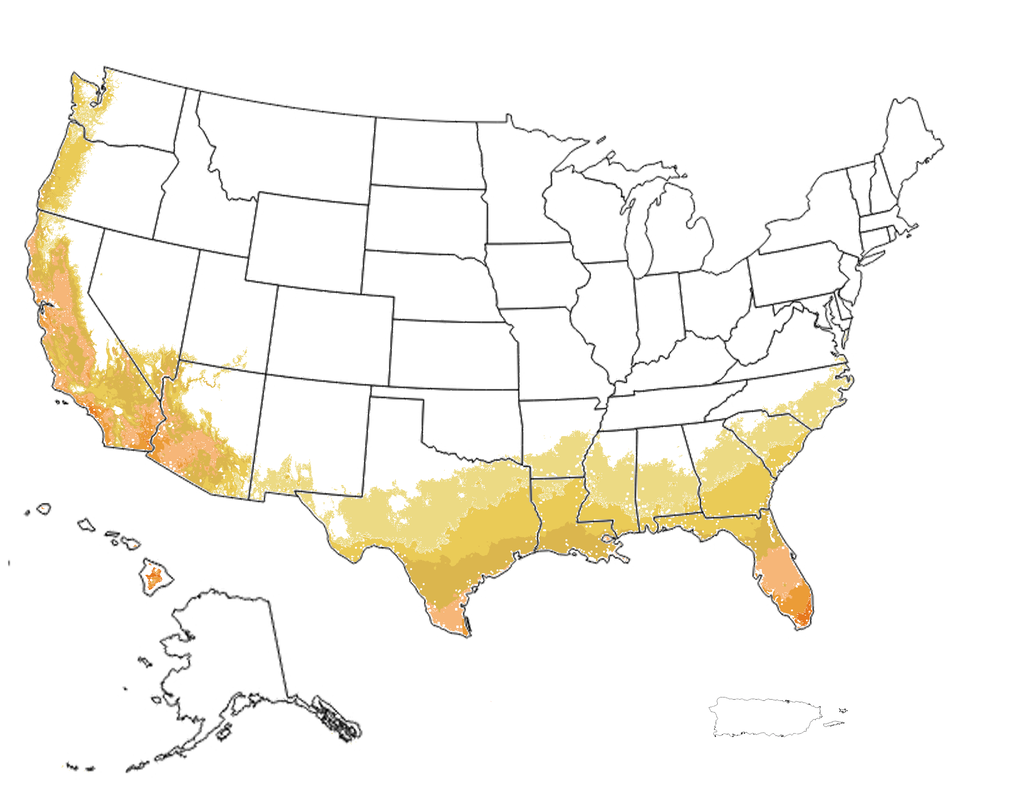Emerald Blueberry
Vaccinium 'Emerald' PP12,165
Emerald Blueberries are large and mildly sweet. Their shrub-like compact growth habit and attractive round, green leaves make them a fantastic landscaping shrub! They were released by the University of Florida in 1999. For higher berry yield, plant two or more varieties near each other.
- Full to partial sun
- Water regularly
- USDA Zone: 8-10
Blueberry plants can be a challenge to grow without the right conditions. It is integral that you provide your blueberry plant with acidic soil, regular watering, proper pruning, and enough sunlight.
Soil
Blueberries prefer acidic soil. This can be achieved by adding pelletized sulfur to your soil. You can also add peat moss to aerate the soil and provide a low-nutrient organic matter, which blueberries love! Once your blueberry plant is in the ground or in a container, be sure to surround the plant with mulch. We recommend using sawdust, wood chips, or pine needles. Each of these options are considered organic matter, which will break down over time and continually add to the quality of your blueberry's soil.
Water
Just like any other shrub, blueberries respond well to drip irrigation. If this is not an irrigation method you would like to pursue, you can alternatively water your blueberry plants lightly and frequently. Do not allow your blueberry plants to sit in water!
Pruning
The best time to prune your blueberry plant is while it is dormant (usually during winter). Carefully assess your blueberry plant and remove any damaged branches. After about 6 years, you can start removing the 6 year old branches, as they will produce less and less berries and block any more new branches from growing in.
Soil
Blueberries prefer acidic soil. This can be achieved by adding pelletized sulfur to your soil. You can also add peat moss to aerate the soil and provide a low-nutrient organic matter, which blueberries love! Once your blueberry plant is in the ground or in a container, be sure to surround the plant with mulch. We recommend using sawdust, wood chips, or pine needles. Each of these options are considered organic matter, which will break down over time and continually add to the quality of your blueberry's soil.
Water
Just like any other shrub, blueberries respond well to drip irrigation. If this is not an irrigation method you would like to pursue, you can alternatively water your blueberry plants lightly and frequently. Do not allow your blueberry plants to sit in water!
Pruning
The best time to prune your blueberry plant is while it is dormant (usually during winter). Carefully assess your blueberry plant and remove any damaged branches. After about 6 years, you can start removing the 6 year old branches, as they will produce less and less berries and block any more new branches from growing in.


